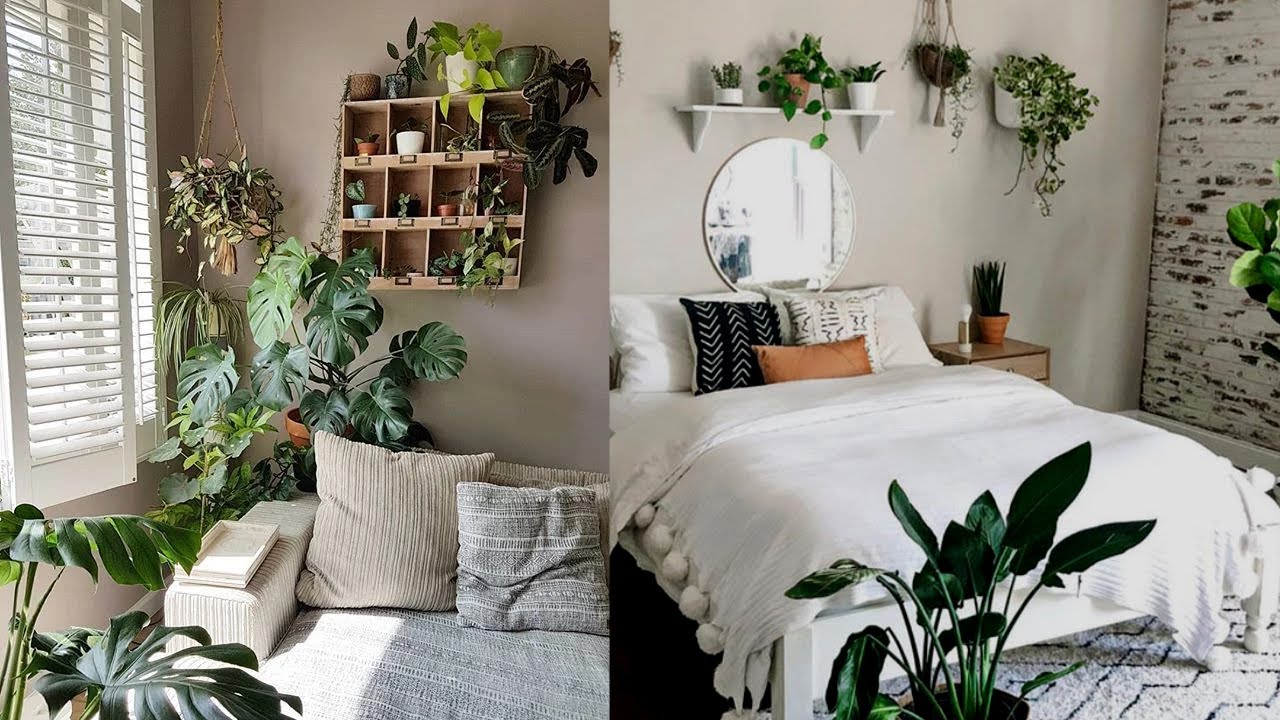If you are searching for a houseplant for your bedroom, there are several options to consider. A few popular options include plants that support yin energy, high humidity, Succulents, Air purifiers, and snake plants. The type of bedroom plant you choose should also be compatible with the lighting in the room. Listed below are some tips to help you choose a plant for your bedroom. Just remember to keep in mind that some plants require more water than others.
Yin energy
The Yin energy of plants suits bedrooms. They help you get a good night’s sleep, so you may want to introduce some plants into your bedroom. The general rule is to have a plant per 100 square feet of bedroom space. To make the most of the Yin energy, choose plants with soft edges. Avoid those with sharp, pointy edges, because they do not absorb water well.
Avoid placing your bed against a solid wall, such as the bathroom. Avoid having your head rest against a window, or placing yourself under a beam. Also, avoid placing shelves or other decorative pieces above the bed. If you do have a mirror, keep it on the opposite side, and try to avoid putting it directly in your face. If you’re concerned about attracting yang energy, you can hang heavy objects over the head of your bed.
You should also try to keep the space under the bed clear of all objects. You can place pillows or other soft objects under the bed to help you sleep. Just make sure that the items don’t add stress and distractions. Shoes should be kept away from the bed because they might cause you to keep walking in circles. And finally, try to avoid placing mirrors on the walls in the bedroom.
Keep the bedroom dark. Avoid technology and the outside world, and reconnect with each other. A bedroom is a place to rejuvenate your soul and rediscover the love and appreciation you have for your partner. You should hang peaceful, inspirational artwork, or photos of you two. A few simple changes will go a long way in making your bedroom a healthier space for you and your partner.
High humidity
There are several different types of plants that are suitable for high-humidity rooms in the home. Some of them are easy to grow and maintain, such as orchids. They don’t like their soil to become too wet, but thrive in filtered light and low-light conditions. Depending on the species, they can be placed on a windowsill in a bedroom or bathroom and need only minimal watering.
Another great option for high-humidity rooms is to place a live plant in the corner. This can help increase the humidity in the room. These plants should be placed in an area where they receive filtered sunlight. They will absorb moisture and nutrients from the air inside the room. If you’d like to learn more about how to select the best plants for your bedroom, you can read Marcel’s articles on the subject.
To choose the best plants for high-humidity rooms, you must first determine the exact type of plant you’d like. Fortunately, you can get a good idea of which type you should choose based on its origin. Some plants will show symptoms of humidity stress – they will have brown tips and margins. The Mayo Clinic recommends that you keep your room humidity between 30 and 50 percent.
To increase humidity around houseplants, try using pebble trays. Fill the pebble trays with about an inch of water. Set the pots on the pebbles so they don’t sit directly in the water. Otherwise, you’ll encourage root rot and plant collapse. When using pebble trays, make sure you rinse and empty them regularly. Keeping them clean will help prevent disease and also reduce the concentration of fertilizer salts in the pots.
Air purifiers
Many people have heard that plants are great for the bedroom, but how do you know which ones are effective? The best plants for the bedroom are those that can clean the air. Lavender, for example, has a beautiful and long-lasting purple flower that has a soothing scent. Lavender is a great plant for the bedroom because it is both beautiful and effective at eliminating harmful toxins.
Aloe Vera has been on NASA’s list of best air-purifying plants. It releases oxygen during the night and is relatively low-maintenance. Aloe Vera can even go three weeks without watering. It is also known for its medicinal properties. If you have skin issues, you can drink Aloe Vera juice to ease your symptoms. Similarly, snake plant and aloe vera plants are effective at removing odors from the air.
The Dracaena is a tall tree native to southeast Asia. It grows up to 15 feet tall, and needs only weekly watering. It should not be placed in direct sunlight. For best results, place it in a shaded area. Watering them too much can cause root decay, so make sure they get enough air each week. Fuchsias are easy to care for and grow in most indoor environments.
Peace lilies are an excellent plant for the bedroom. They filter harmful toxins, increase humidity, and suppress airborne microbes that can cause allergies. The white color of their flowers is also a great sign of peace. In fact, the white flag is the symbol of peace worldwide. Peace lilies need watering on a weekly basis to stay healthy. They are also aesthetically pleasing, so they’re a great choice for the bedroom.
Succulents
Succulents are low-maintenance plants that require little maintenance. This doesn’t mean you should ignore the importance of air circulation. You should also avoid placing succulents near the front door, where they will repel family members and visitors, and create an obstacle in the way. Succulents are also bad for business desks, as they can negatively impact your relationship with business partners and visitors. And they should be kept out of the bedroom, because they can lead to intimacy problems.
Another benefit of succulents is their ability to purify the air in your room. They release oxygen throughout the night, unlike humans. This can help you sleep better. Because plants produce more oxygen than we do, they can improve your air quality. Also, some plants release essential oils that can help you relax and sleep better. Aim for five to ten plants in your bedroom. Choose ones with larger leaves and lower water needs. Also, make sure the plants you choose are oxygen-producing.
Succulents are easy to propagate. Snake plants and aloe are particularly good at improving the air quality. You can also use grow lights if the room gets too bright during the day. Burrow’s tail, which grows in hanging baskets, is another great option. Its flesh-tear-shaped leaves and drooping stems make it look lovely in a hanging basket. In winter, it is dormant but actively grows in the spring. If you want to keep your bedroom humid, fertilize the plant with diluted fertilizer.
If you have a low-light room, consider a snake plant. They grow well in low-light conditions and don’t bloom regularly. However, you might want to choose a plant that blooms frequently, like the flaming katy. Its colorful blooms make it a popular hostess gift. However, don’t use a plant with too much light, as the leaves may fall off easily.
Trees
A tree can be a perfect choice for a bedroom. It provides a sense of nature and tranquility. It’s also good for your mental health. If you have a green thumb, you can try artificial plants. They can transform a bare room into a serene haven, and don’t need to be watered or pruned. Artificial plants can also be easily cleaned and maintained. They’re a great option if you want a green bedroom without the maintenance.
Another choice is a tree. These are good indoor plants because they can add visual interest to a room. Studies have shown that caring for houseplants reduces stress and increases positive emotions. Choose the right plant for your room based on its location and gardening style. A yucca is a great choice for those who are forgetful about watering, while a money tree will thrive even in a dormant bedroom.
Besides providing a natural environment, bedroom plants can also help you sleep better. Ideally, they are low-maintenance and thrive in low light. Peace lilies and orchids are good for bedrooms, but you can also try a hanging basket. Aside from adding life energy, some bedroom plants are great air purifiers. Leafy houseplants can also improve the air quality, making it healthier to breathe.
Plants improve air quality and can improve your mood. They are also easy to care for, and add beauty to any room. Plants bring a natural feeling of calm and tranquility. This can make it easier for you to fall asleep and stay awake. Regardless of the type of plant, there is a plant to fit your space perfectly. If you’re not sure which one is right for your space, try a few and see what happens.



